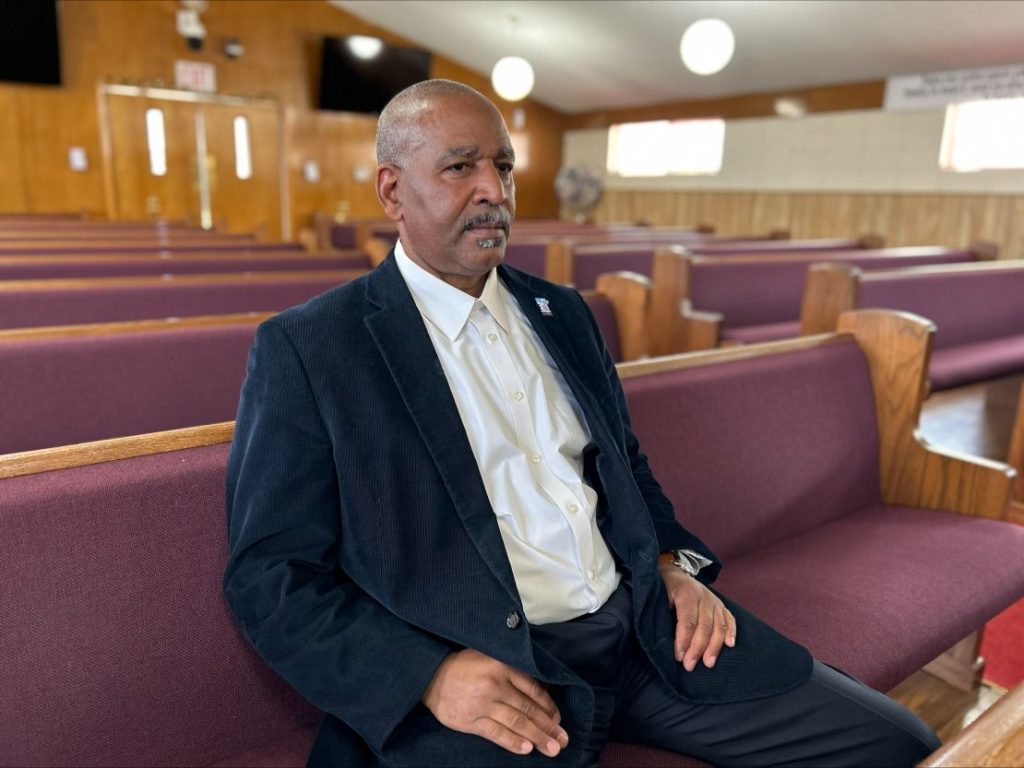The recent events in Enid, Oklahoma, have brought to light a contentious chapter in the city’s history, revolving around the actions of City Council Commissioner Judd Blevins and the community’s response to his past affiliations with White nationalism. From public outcry to a deeply divided electorate, the journey towards accountability and reconciliation has been fraught with challenges and moral reckonings. This article delves into the unfolding saga of Enid’s political landscape, examining the controversies surrounding Blevins and the broader implications for the city’s future.
The Unveiling of Blevins’ Past
The controversy surrounding Judd Blevins erupted when his ties to White nationalist groups and his participation in the 2017 “Unite the Right” rallies in Charlottesville, Virginia, came to light. These revelations sparked outrage among residents, prompting calls for accountability and transparency from local activists and concerned citizens. Despite initial attempts to downplay the allegations, Blevins’ past affiliations cast a shadow over his tenure as a city council commissioner, igniting a fierce debate over the principles of free speech, forgiveness, and the legacy of racism in America.
A City Divided: Ideological Struggles and Ethical Dilemmas
The fallout from Blevins’ controversial past exposed deep ideological fault lines within the community, pitting advocates for accountability against defenders of free expression. While some residents condemned Blevins’ actions as incompatible with his role as a public official, others rallied behind him, citing his right to political dissent and the need to move past historical grievances. The ensuing tensions underscored the complexities of addressing systemic racism and confronting the legacies of hate in contemporary America.
The Role of Forgiveness: A Tale of Reconciliation
Amidst the furor surrounding Blevins’ past, one pivotal moment of reconciliation emerged, transcending the divisions that had torn the community asunder. In a poignant display of forgiveness, Commissioner Derwin Norwood, the sole Black member of the city council, extended a gesture of compassion towards Blevins, urging the community to embrace forgiveness over recrimination. Norwood’s act of grace served as a beacon of hope in a tumultuous time, challenging residents to confront the wounds of the past with empathy and understanding.
The Path to Accountability: A Democratic Reckoning
In a democratic society, the ultimate arbiter of accountability lies with the electorate. Faced with mounting pressure from activists and civic groups, Enid residents seized the opportunity to hold their elected officials to task through the mechanisms of recall and special elections. The democratic process served as a crucible for change, allowing voters to voice their concerns and assert their collective will in shaping the future of their community. In the end, the decision to remove Blevins from office reflected a collective desire for accountability and a rejection of intolerance in all its forms.
Charting a Course Forward
As Enid grapples with the aftermath of Blevins’ ouster, the city stands at a crossroads, poised to chart a new course towards reconciliation and healing. The events surrounding Blevins’ tenure serve as a sobering reminder of the enduring legacy of racism and the ongoing struggle for social justice in America. Moving forward, it is incumbent upon community leaders and citizens alike to confront the challenges of the past with courage and conviction, forging a path towards a more inclusive and equitable future for all.
